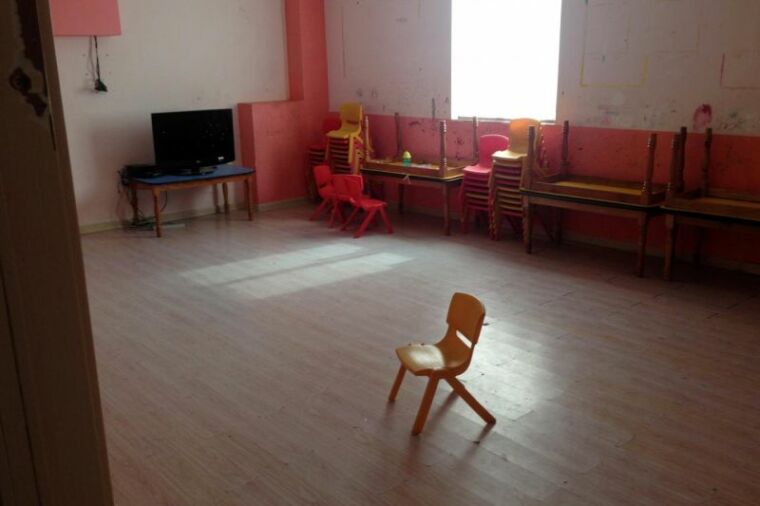Christians in 'China's Jerusalem' ignore ban on Sunday School classes

Christians in China's southeastern city of Wenzhou are ignoring the official ban on Sunday School classes so that children could keep learning about Jesus and the Bible.
After city officials outlawed Sunday School classes earlier this year, churches started teaching children in private homes or at other venues. Some went around the ban by moving the classes to Saturdays or by billing the sessions as daycare, instead of education, according to Reuters.
The ruling Communist Party has been stepping up its efforts to curb the influence of Christianity, but the resolve of the Christian community in Wenzhou, sometimes known as "China's Jerusalem," suggests that government officials would struggle to exert its control over the next generation of believers.
One parent, who was identified only by her surname Chen, told Reuters that in her house, "faith comes first, grades come second."
Chen is just one of Wenzhou's wealthy Christians who believe that children must attend Bible classes because state education does not adequately provide moral and spiritual guidance.
"Drugs, porn, gambling and violence are serious problems among today's youth and video games are extremely seductive. We cannot be by his side all the time so only through faith can we make him understand (the right thing to do)," she said.
Sunday Schools have been banned in some districts of Wenzhou, in Zhejiang Province, since August, according to sources with direct knowledge in the matter.
It has been reported in September that children have been barred from taking part in faith activities, including summer camp, in the provinces of Zhejiang, Fujian, Jiangsu, Henan and the autonomous region of Inner Mongolia.
That same month, the officials also released new rules expanding state oversight of religious education nationwide. The new rules have been described by officials as an attempt to create a new generation of religious leaders loyal to the party.
Late last year, the Zhejiang government issued an order requiring churches in Wenzhou to install surveillance cameras for "anti-terrorism and security purposes."
Pastor Yan Xiaojie, a missionary in the city, said that the order reminded him of the cross demolitions that took place in 2014.
During that campaign, as many as 360 crosses were removed from places of worship in Wenzhou and one church was demolished.
According to Reuters, the campaign was launched shortly after President Xi Jinping, who had been communist party chief of Zhejiang from 2002 to 2007, was appointed as the party's General Secretary.
While the Chinese government officially grants religious freedom for all, including children, the regulations on education and protection of minors state that religion cannot be used to hinder state education or to "coerce" children to believe.
Chen, however, contends that faith should be at the forefront of education until believers outnumber atheists among China's youth.
"There will definitely be more Christian believers in the next generation. The ability for the Christian faith to be inherited and passed on is ever growing," she said.
 Christians don't have to affirm transgenderism, but they can’t express that view at work: tribunal
Christians don't have to affirm transgenderism, but they can’t express that view at work: tribunal Archaeology discovery: Medieval Christian prayer beads found on Holy Island
Archaeology discovery: Medieval Christian prayer beads found on Holy Island Presbyterian Church in America votes to leave National Association of Evangelicals
Presbyterian Church in America votes to leave National Association of Evangelicals Over 50 killed in 'vile and satanic' attack at Nigerian church on Pentecost Sunday
Over 50 killed in 'vile and satanic' attack at Nigerian church on Pentecost Sunday Ukrainian Orthodox Church severs ties with Moscow over Patriarch Kirill's support for Putin's war
Ukrainian Orthodox Church severs ties with Moscow over Patriarch Kirill's support for Putin's war Islamic State kills 20 Nigerian Christians as revenge for US airstrike
Islamic State kills 20 Nigerian Christians as revenge for US airstrike Man who served 33 years in prison for murder leads inmates to Christ
Man who served 33 years in prison for murder leads inmates to Christ


 Nigerian student beaten to death, body burned over ‘blasphemous’ WhatsApp message
Nigerian student beaten to death, body burned over ‘blasphemous’ WhatsApp message 'A new low': World reacts after Hong Kong arrests 90-year-old Cardinal Joseph Zen
'A new low': World reacts after Hong Kong arrests 90-year-old Cardinal Joseph Zen Iran sentences Christian man to 10 years in prison for hosting house church worship gathering
Iran sentences Christian man to 10 years in prison for hosting house church worship gathering French Guyana: Pastor shot dead, church set on fire after meeting delegation of Evangelicals
French Guyana: Pastor shot dead, church set on fire after meeting delegation of Evangelicals ‘Talking Jesus’ report finds only 6% of UK adults identify as practicing Christians
‘Talking Jesus’ report finds only 6% of UK adults identify as practicing Christians Mission Eurasia ministry center blown up in Ukraine, hundreds of Bibles destroyed: 'God will provide'
Mission Eurasia ministry center blown up in Ukraine, hundreds of Bibles destroyed: 'God will provide' Church holds service for first time after ISIS desecrated it 8 years ago
Church holds service for first time after ISIS desecrated it 8 years ago Burger King apologizes for 'offensive campaign' using Jesus' words at the Last Supper
Burger King apologizes for 'offensive campaign' using Jesus' words at the Last Supper Uganda: Muslims abduct teacher, burn him inside mosque for praying in Christ’s name
Uganda: Muslims abduct teacher, burn him inside mosque for praying in Christ’s name